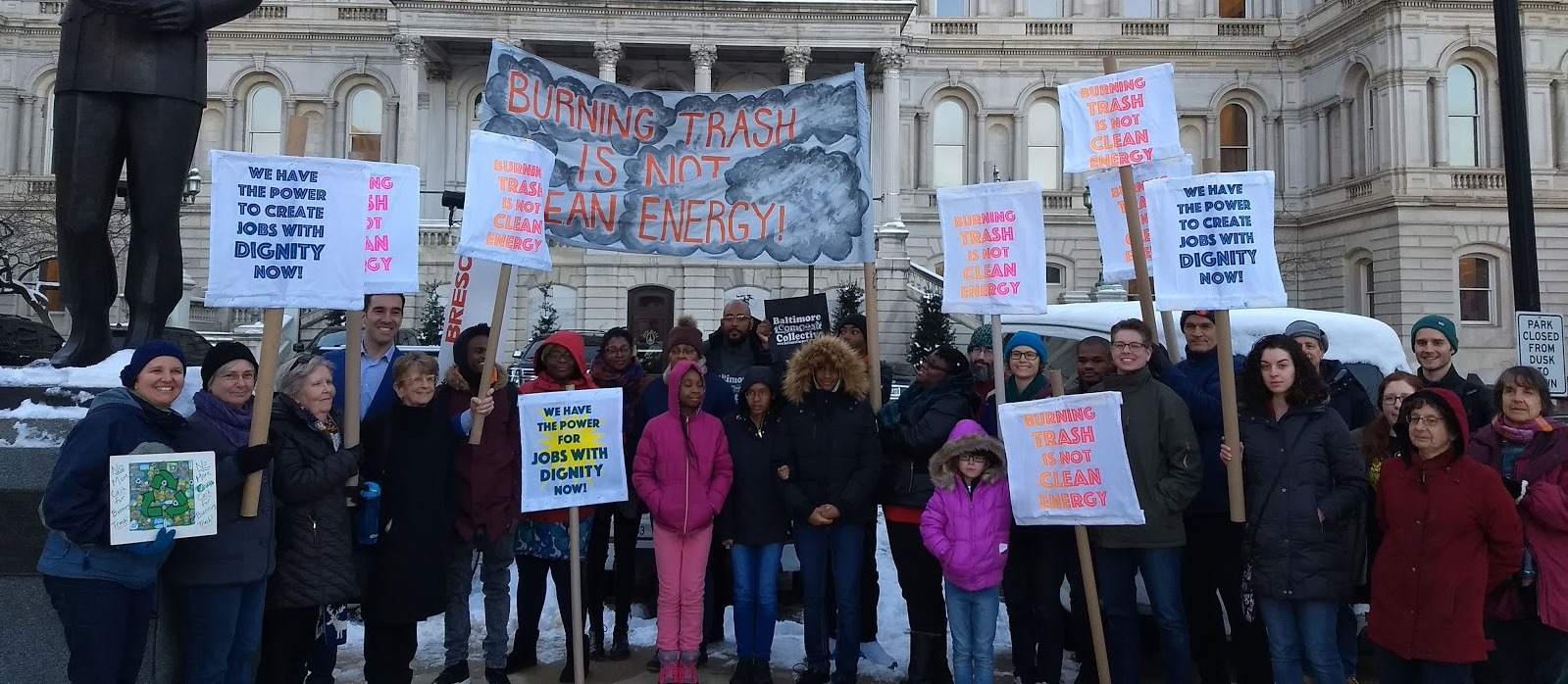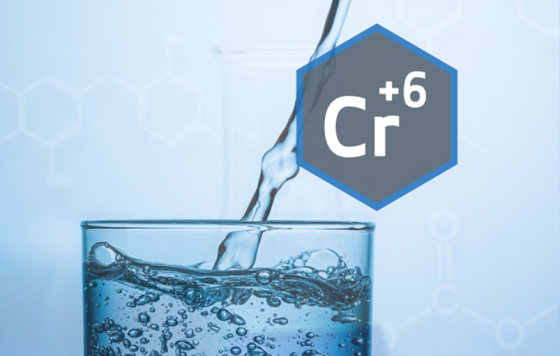
Tonight, the Baltimore City Delegation in Maryland's House of Delegates is hosting its 4th Annual Issues & Priorities Pre-Session Hearing. One of the top items on Baltimore's environmental justice agenda: we need to stop subsidizing trash incineration! Check out our testimony below, and click here to email your representatives.
Update: You can view the recording of the Baltimore City Delegation's 4th Annual Issues & Priorities Pre-Session Hearing here!
November 27, 2023
Dear Baltimore City Delegation,
Clean Water Action urges you to support and actively work to pass the Reclaim Renewable Energy Act of 2024. This simple, streamlined bill will eliminate trash incineration from Maryland’s Renewable Portfolio Standard. This move will fix a longstanding flaw in Maryland law that has caused public money to be wasted for years. Eliminating trash incineration from Maryland’s RPS will redirect subsidies currently being wasted on profits to three polluting trash incinerators - in Baltimore City, Montgomery County, and Lorton, VA - toward the real renewable energy, like wind and solar power, that the RPS program is intended to support and that we need to clean our air and fight climate change.
Baltimore City government supports eliminating trash incineration from the RPS.
In the 2023 legislative session, the Mayor’s Office of Government Relations submitted testimony in support of eliminating trash incineration from the Renewable Portfolio Standard. District 10 City Councilmember Phylicia Porter and Baltimore City Director of Sustainability Ava Richardson traveled to Annapolis to testify in support of the legislation. In explaining its position, the Mayor’s Office of Government Relations wrote:
This bill better aligns the State of Maryland’s RPS with our citywide goals to reduce the emission of greenhouse gasses in both the waste and energy sectors. These changes help to prioritize renewable energy subsidies are dedicated to evidence-based renewable energy generation such as solar, wind, and hydro energy, opposed to polluting industries. … Including carbon-emitting resources as eligible for Tier 1 renewable energy source in Maryland’s RPS is counterintuitive to Baltimore City’s 2019 Sustainability Plan strategies, the city’s carbon neutrality goals and efforts to decrease air pollution. Based on the city’s 2020 greenhouse gas inventory, waste incineration, when separated out, comprises roughly 9.5% of all point source emission in Baltimore. This same industry perennially receives subsidies in state RECs while placing an unjust environmental burden on predominantly African American and low-income residents in South Baltimore. It is imperative state renewable energy subsidies support truly renewable energy, such as solar.
Baltimore City is not alone among local governments in supporting this legislation. In the 2023 legislative session, Montgomery County, which owns the other municipal waste incinerator in Maryland, and Frederick County, which considered building a new trash incinerator before canceling the contract in 2014, also submitted favorable testimony.
Trash incineration pollutes the climate, harms our health, and does not meet the goals of the Renewable Portfolio Standard.
The General Assembly established Maryland’s Renewable Portfolio Standard program in 2004 to facilitate the transition toward renewable energy to fight climate change and clean the air. Subsidizing trash incineration does not help Maryland achieve these goals.
Trash incineration emits significant greenhouse gasses and other pollutants that harm the climate and our health. A recent peer-reviewed study in PLOS Climate found that “incinerators emit more greenhouse gas emissions per unit of electricity produced than any other power source.” Trash incinerators burn a significant amount of plastic waste, which is ultimately a non-renewable resource made from fossil fuels; much of the thermal output and therefore electricity produced by incinerators therefore comes from fossil fuels. Each ton of plastic burned in an incinerator results in the release of 1.43 tons of CO2, driving climate change by essentially burning fossil fuels in the form of plastics.
Trash incineration also emits significant air pollution that harms Baltimore residents’ health. The same study in PLOS Climate found that incinerators “emit more criteria air pollutants” - those that harm our health - “than replacement sources of energy.” When Maryland residents pay subsidies toward trash incineration, they are not getting what they are supposed to be paying for: real renewable energy.
Maryland’s original Renewable Portfolio Standard was designed to sunset subsidies for trash incineration in 2019.
When the legislation creating Maryland’s Renewable Portfolio Standard passed in 2004, trash incineration was included as a Tier 2 energy source. Subsidies for Tier 2 energy sources were designed at the time to stay stagnant at 2.5% of the market with an eventual phase out in 2019: a recognition that trash incineration is not as desirable or valuable as truly renewable energy like wind and solar power. However, in 2011, the incinerator industry mounted an intense and ultimately successful effort to move trash incineration to Tier 1 as two new proposed incinerators were on the horizon in Maryland: one in Frederick to burn Frederick and Carroll Counties’s trash, and a second one in the Fairfield Industrial Area in South Baltimore. The two proposed incinerators were ultimately rejected by the communities they targeted, due to the high pollution levels and high financial burden the incinerators would have brought. However, trash incineration remained in the RPS’s more highly subsidized and permanent Tier 1 category and Maryland residents were left subsidizing aging incinerators that existed before the Renewable Portfolio Standard had been created, as a legacy of the fight over these failed proposals for new incinerators that were never built.
Eliminating trash incineration from the RPS means making more funding available for real renewable energy.
Money spent subsidizing trash incineration is money that could have gone toward other renewable energy sources In 2021, three trash incinerators (in Baltimore, Montgomery County, and Lorton, VA) profited $14.8 million in subsidies from Maryland electricity customers. That $14.8 million should have gone to support the real renewable energy development that Maryland residents actually need, not to give extra profits to facilities that operated without subsidies long before Maryland’s RPS was created.
Conclusion
Eliminating trash incineration from Maryland’s RPS has been a demand of communities impacted by the industry ever since trash incineration was added to Tier 1 of the RPS in 2011. Now in 2024, 20 years since Maryland’s RPS was created, it’s time to fix this flaw in the RPS program, redirect the subsidies that incinerators have been erroneously receiving, and ensure that more millions of dollars per year are available to support the real renewable energy that Maryland needs.
At its November 9 meeting, the Maryland Commission on Climate Change voted to include a recommendation that Maryland eliminate trash incineration from the Renewable Portfolio Standard in its Annual Report. The climate and environmental justice communities in Baltimore City and across Maryland are united in calling for the legislature to eliminate trash incineration from the RPS. The Baltimore City Delegation can support its constituents and the calls of climate, environmental justice, and public health advocates from across the state by supporting the Reclaim Renewable Energy Act of 2024 and eliminating trash incineration from Maryland’s RPS.
Sincerely,
Jennifer Kunze
Maryland Organizing Director
Clean Water Action
jkunze@cleanwater.org



